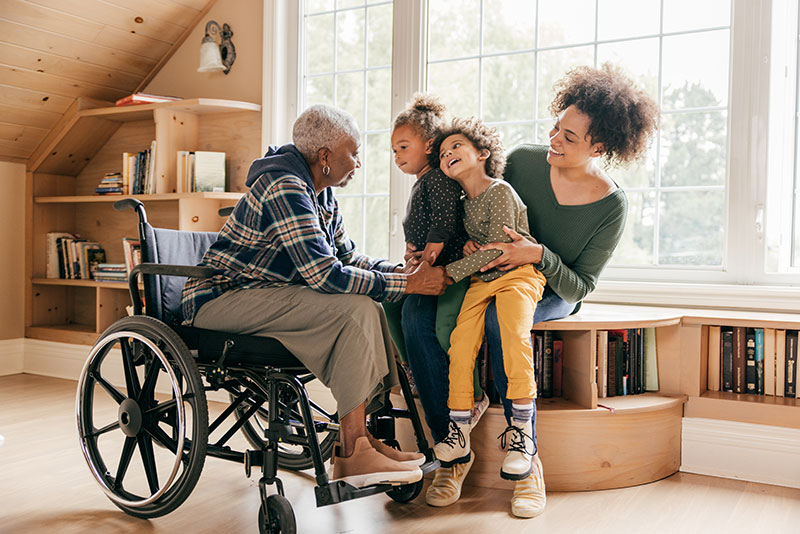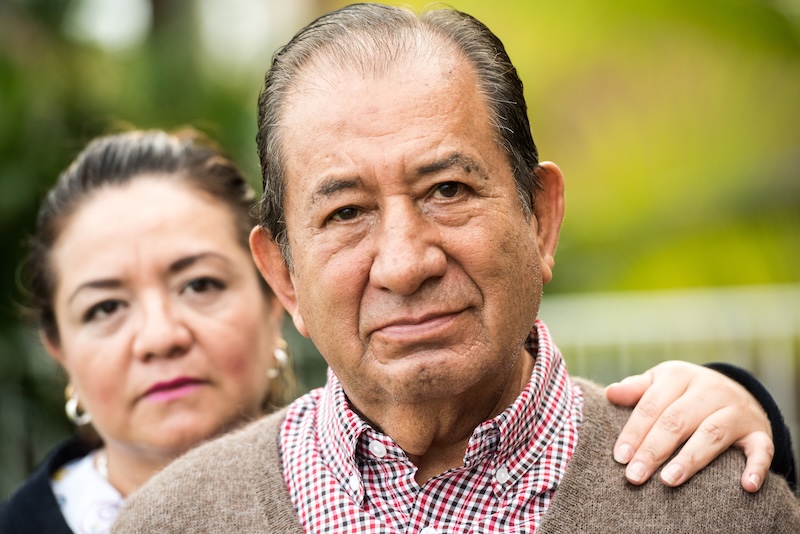Hidden Disabilities in Seniors: How to Recognize and Combat Ableism

What’s your first thought when you see an individual in a wheelchair? Do you view that person as less-than, someone in need of being fixed? Do you assume they need special treatment, as though a physical disability impacts intellect as well? How does your thinking shift to see someone standing upright, without the need for a wheelchair; would you think they were better-abled than the wheelchair-bound older adult?
These are tough questions that call for honest answers if we’re to understand and respond accordingly to hidden disabilities in seniors and ableism.
What Is Ableism?
Ableism is identified as “the discrimination of and social prejudice against people with disabilities based on the belief that typical abilities are superior.” It leads to harmful misconceptions and stereotypes.
The Two Sides of the Disability Coin
Individuals with visible disabilities encounter ableism in many ways: exclusion from venues that are inaccessible, being spoken down to or asked intrusive questions, having to wait to use an accessible restroom stall while in use by an individual who could be using a standard stall, etc. Conversely, there are many disabilities that aren’t as easily visible (such as hearing impairment, Alzheimer’s disease, or a heart condition), accounting for up to 80% of the disabled population. These individuals may have their concerns minimized and need to fight harder to get any accommodations needed.
No matter whether a disability is apparent or hidden, there are steps we can all take to promote inclusion and equality:
- Treat everyone in the manner in which you would want to be treated. Look them in the eye. Say hello. Engage them in a conversation if they welcome the social interaction.
- Avoid trying to think for the person or impose your help. Offer assistance in an open-ended manner if it seems needed, giving them the option to let you know if they would like your help or not.
- Never speak over or around the person, addressing a caregiver first. Speak directly to the older adult, and if help with conversing is needed, the caregiver can then step in. Remember that the individual is an adult, and should always be spoken to as such.
At Hired Hands Homecare, we’re dedicated to treating each person we serve with dignity and respect. We can help someone you love with a full range of personalized in-home care services such as:
- Discreet personal care support, for safe baths/showers, restroom use, getting dressed, etc.
- Planning and preparing nourishing meals and providing assistance with eating when needed
- Assistance with walking and transfers
- Specialized care for chronic health needs, such as Parkinson’s and Alzheimer’s disease
- Companionship to brighten each day through conversations, activities, games, arts and crafts, exercise, and more
- Transportation and accompaniment
- Running errands such as grocery shopping and picking up prescriptions
- And so much more
Reach out to us at (866) 940-4343 for more information about our home care services in Novato, Santa Rosa, Napa, and throughout the Bay Area.








Leave a Reply